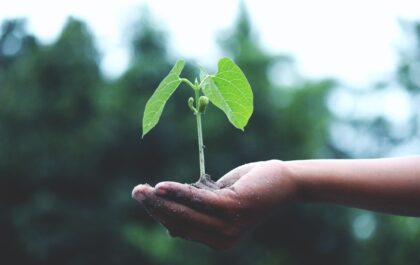The effects of COVID-19 will have a long and profound impact on the oil and gas industry in the long term. It is expected that the world will change how it operates as more people become cautious of the outdoors while others adopt remote working as a concept – meaning, fewer people may require to travel. In addition, companies’ dependent on fuel and gas such as the airline and ship industries may take longer to regain their former status. Furthermore, reports indicate that environmentalist will likely heighten their appeal for sustainability and accountability of companies operating along in the oil and gas supply chain following previous accusations over pollution and irresponsible operations (Milman, 2020). With these risks remain a threat to the future of oil and gas production, coupled with the objective to develop a more sustainable and socially responsible production process, the company should adopt a more sustainable approach to gas and oil production as a means to remain competitive, add to the gains achieved on the environment following the slowed down economic activities from the pandemic, and as a means to compete in the new emerging economy.(If you need a similar paper, contact buytermpaper online)
Historically, companies operating in the oil and gas industry have been criticized for investing in social infrastructure that does not limit their impact on the society they operate. For instance, following the 2010 oil spill at the gulf, BP was criticized for the lack of ethics in its business operations despite having a seemingly strong and proactive CSR program. To skeptics such as MacDonald (2010), BP’s CSR objectives are not social and should be categorized as the company’s obligation to its stakeholders. MacDonald contends that objectives such as having a duty to the customer, dealing honestly with suppliers, and ensuring reasonable health and safety for employees are the company’s duty and should not be viewed as a favor to society. Equally, ExxonMobil objectives match those of BP. As indicated on its website, the company’s social responsibility on governance is to “creates a business environment conducive to long-term growth” (ExxonMobile, 2020). To protect the environment, the company begins by acknowledging that “ access to reliable and affordable energy is essential to economic growth and improved standards of living,” hence, the company strives to “demonstrate leadership in environmental management” and by recognizing the environmental risks associated with the industry as well as evaluating potential and actual risks at each stage its projects to mitigate environmental impacts. While these statements may appear to affirm these companies resolve to protect the environment, they fail to address social concerns over production processes and do not indicate sustainability measures the companies are implementing to protect the environment, personnel, and other stakeholders. (Order a custom paper @ Discussionboardhomeworkhelp.com)
As the world re-opens economies and production processes begin, I recommend that our company redevelops its social and sustainability efforts in production. The process should begin by redesigning the objectives and separating the businesses’ economic and financial objectives from those of the CSR program. The company should also invest in new technology as part of its social responsibility and as a means to remain competitive. Should economic predictions hold, demand for oil and gas products could require the company to innovate to capture new markets. Equally, should societies and governments demand products with minimal environmental impact, the company will have to develop new production processes, products, and marketing strategies to meet consumer demands.
Related posts
When was the first presidential election in the US?
The election process in the world’s most powerful nation, the US, has come a long way. Various amendments have been made to the Constitution that allowed black men, white women and other disadvantaged groups to participate in the elections. Further amendments during the 60s and…
Tips & Trick For Healthy Glowing Skin
Lorem ipsum dolor sit amet, consectetur adipiscing elit. Nam laoreet, nunc et accumsan cursus, neque eros sodales lectus, in fermentum libero dui eu lacus. Nam lobortis facilisis sapien non aliquet. Aenean ligula urna, vehicula placerat sodales vel, tempor et orci. Donec molestie metus a sagittis…
My Fight With Depression. Concussions
Lorem ipsum dolor sit amet, consectetur adipiscing elit. Nam laoreet, nunc et accumsan cursus, neque eros sodales lectus, in fermentum libero dui eu lacus. Nam lobortis facilisis sapien non aliquet. Aenean ligula urna, vehicula placerat sodales vel, tempor et orci. Donec molestie metus a sagittis…
Top 10 most visited tourist places in the world
Lorem ipsum dolor sit amet, consectetur adipiscing elit. Nam laoreet, nunc et accumsan cursus, neque eros sodales lectus, in fermentum libero dui eu lacus. Nam lobortis facilisis sapien non aliquet. Aenean ligula urna, vehicula placerat sodales vel, tempor et orci. Donec molestie metus a sagittis…
How Digital Health Technology Is Beneficial?
Digital health revolves around the usage of diverse technological platforms including mobile health, teen health, configurable remote patient monitoring, etc to improve the connection between the patients and the doctors. Across the healthcare system, the horizon and scope of digital health have helped create opportunities…
How Latest Farmtrac Tractors are Improving Farming in India?
India mostly relies on farming, and a large part of the population depends on it for their livelihoods. Recently, there’s been a big shift towards using modern farming techniques and machinery to make farming more productive and efficient. A good example of this is the…
Dispelling Myths: Demystifying Rx Waste and Expiration Dates – WasteX Pharmaceutical Waste Disposal Separates Fact from Fiction
The specter of “expired” medication looms large, conjuring images of potent chemicals wreaking havoc on water sources and ecosystems. But before you panic toss that bottle of pills, let’s delve into the truth about pharmaceutical waste and expiration dates, separating fact from fiction. At WasteX…
Sustainable Living in Memphis: Green Initiatives and Eco-Friendly Hotspots
Memphis, a city known for its rich cultural heritage and vibrant atmosphere, is increasingly becoming a hub for sustainable living. As environmental awareness continues to grow, residents and businesses in Memphis are embracing green initiatives and fostering eco-friendly practices. Let’s explore the city’s commitment to…
Today's pick
Hot topics
Stay connected
Meet the Author

Gillion is a multi-concept WordPress theme that lets you create blog, magazine, news, review websites. With clean and functional design and lots of useful features theme will deliver amazing user experience to your clients and readers.
Learn moreCategories
- Animals (7)
- Apps & Softwares (8)
- Automotive (8)
- Beauty (8)
- Business (141)
- Cars (12)
- Cartoon (3)
- Cook (4)
- Cooking (1)
- Design (8)
- Economy (6)
- EDUCATION (25)
- Entertainment (16)
- Fashion (23)
- Fitness (2)
- Food (16)
- Gaming (51)
- Guide (20)
- Health (119)
- Home (52)
- Home improvement (12)
- Interior (3)
- Law (16)
- Life (1)
- LifeStyle (99)
- Marketing (5)
- Motivation (9)
- Movie (6)
- Movies (1)
- Music (3)
- News (8)
- Painting Art (1)
- People (15)
- Photography (7)
- Review (113)
- Services (7)
- Social Media (6)
- Sport (9)
- Sports (12)
- Style (10)
- Swimming (1)
- Tech (125)
- Travel (26)
- Uncategorized (17)
- Vape (5)
- Western (3)
- World (2)










